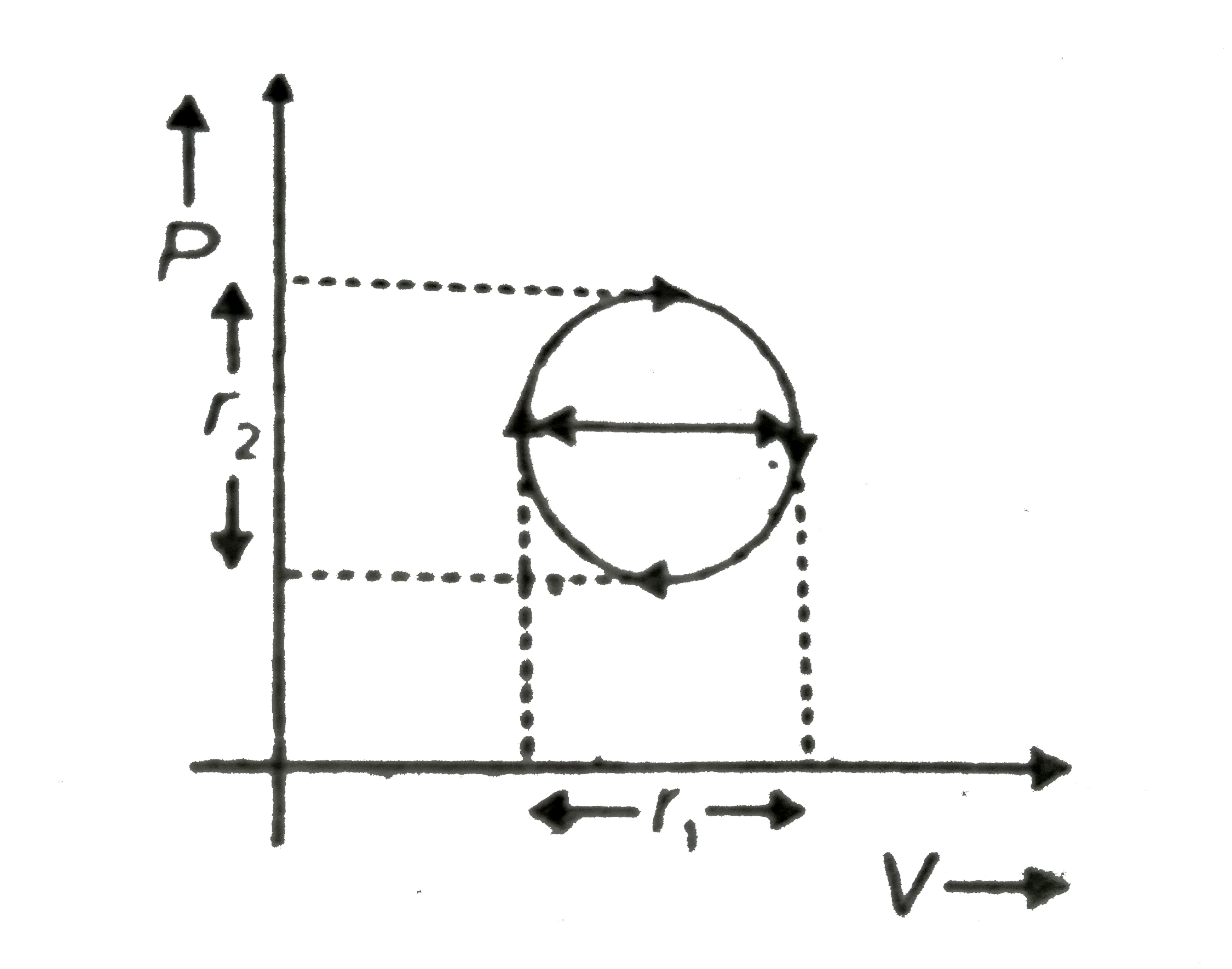In a process, the pressure of an ideal gas is proportional to square of the volume of the gas. If the temperature of the gas increases in this process, then work done by this gas
is positive
is negative
is zero
may be positive
The correct Answer is:B
Pα1V2⇒P=kV2⇒PV2=k
⇒PV.V=k⇒nRTV⇒TV=k1
Since temperature increases therefore volume decreases
Topper's Solved these Questions
Similar Questions
Knowledge Check
In a process the pressure of a gas is inversely proportional to the square of the volume. If temperature of the gas increases, then work done by the gas:
Ais positiveBis negativeCis zeroDmay be positiveDuring an adiabatic process, the pressure of a gas is found to be proportional to the square of its absolute temperature. The γ for the gas is
A32B54C75D2During an adiabatic process. The pressure of a gas is to be proportional to the cube of its absolute temperature The value of γ for the gas is :
A53B75C32D119
In a thermodynamic process two moles of a monatomic ideal gas obeys PV–2=constant. If temperature of the gas increases from 300 K to 400 K, then find work done by the gas (Where R = universal gas constant)
View SolutionDuring an adiabatic process, the pressure of a gas is found to be proportional to cube of its absolute temperature. The poision's ratio of gas is:
View SolutionAn ideal diatomic gas occupies a volume V1 at a pressure P1 The gas undergoes a process in which the pressure is proportional to the volume . At the end of process the root mean square speed of the gas molecules has doubled From its initial value then the heat supplied to the gas in the given process is
View SolutionDuring an adiabatic process, the pressure of a gas is found to be proportional to the cube of its absolute temperature the ratio CpCv for the gas is
View SolutionDuring an adiabatic process, the pressure of a gas is found to be proportional to the cube of its temperature. The ratio of CPCV for the gas is
View Solution

